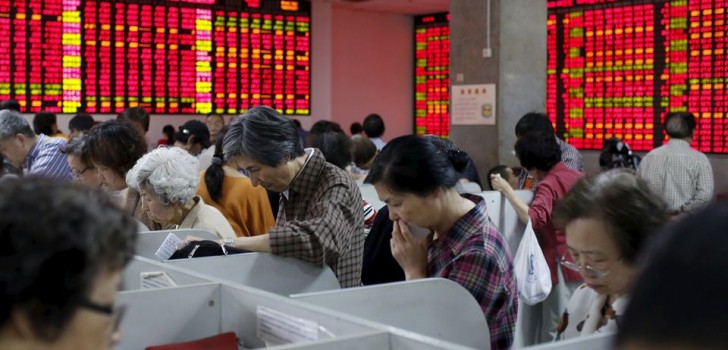The Chinese stock market is hemorrhaging nonstop, sending indigenous investors into a selling frenzy at record low prices. Millions of one-time day traders are opting out of the market as the government injects more and more capital to boost the stock trade that has erased the wealth of millions of people.
China’s stock market, experiencing its worst decline since it started trading in 1990, has seen over $3.4 trillion in value of listed companies disappear in recent weeks. So severe is the decline that almost half of the companies in the exchange have suspended trading. Another 800 had their stocks automatically halted after their values exceeded their allowed daily drop limits. Only a handful of companies, approximately 22 per cent of the listed firms, remained active.
The drop has been the most catastrophic occurrence for China’s economy and, as is most often the case, it is everyday folk that have lost the most.
Unlike in the U.S., where institutions are the highest investors in stock, retail investors are king in China, owning more than 80 per cent of the market, according to China’s markets regulator the CICC.
In a bid to stem the loss of their savings, retail investors began selling their shares on a large scale, sending the already falling prices into a nose dive. By the close of business in July, only 51 million small investors were holding accounts in stocks, down from 75 million the month before, signaling a loss of more than 20 million investors in a month.
The plunge in market prices caught many Chinese by surprise. “Now I realize I can lose a lot of money very quickly,” quipped one trader.
China’s market had been on a seven year upward before the start of the decline. The attractive price increases had grown by so much they exceeded bank interest rates, leading many to take loans to purchase stocks. When the market finally plunged, many were left with nowhere to go but downhill.
Chinese regulators and the government have announced a host of measures to try and prop up the failing market. The country’s exchange regulator, the China Securities Regulatory Commission (CSRC) said it would increase share purchases for small and medium companies after being criticized for only purchasing the bigger caps.
The measures are, however, unlikely to stem the bleeding.
China’s market drop has reached unprecedented and increasingly uncontrollable depths. Only time will tell whether the market can rally past the dip and what the long term implications for the economy will be.
Stay Connected